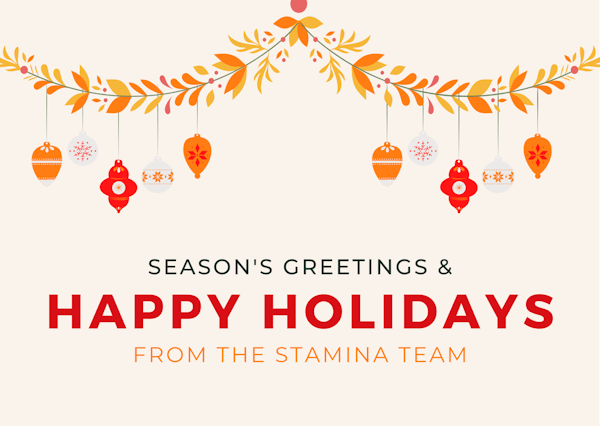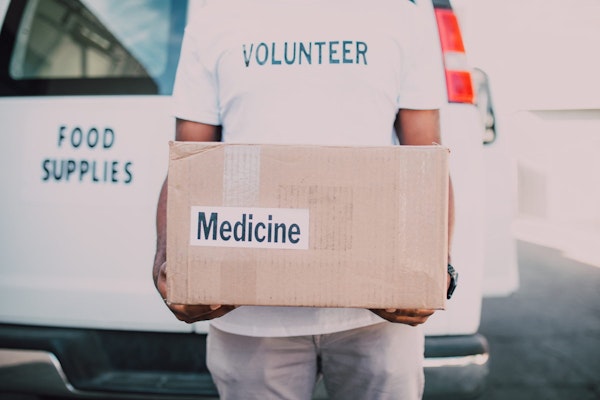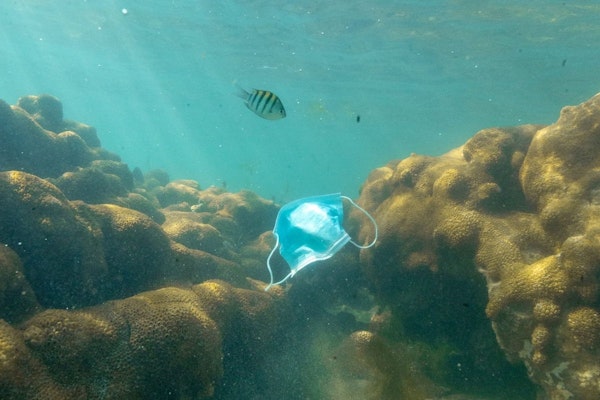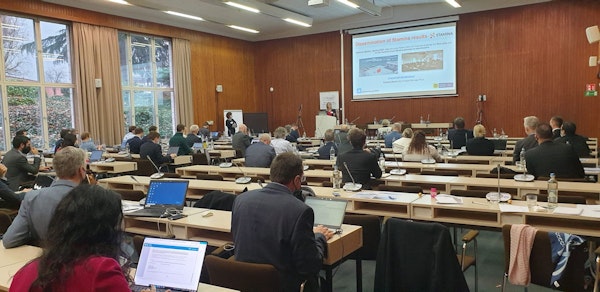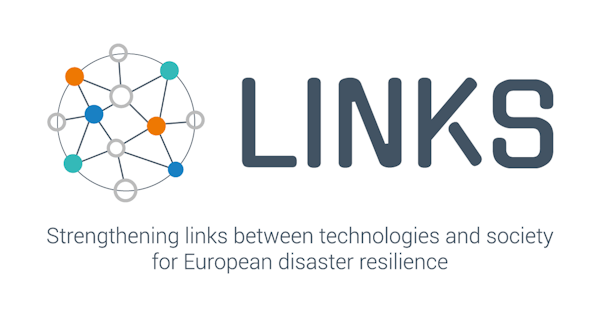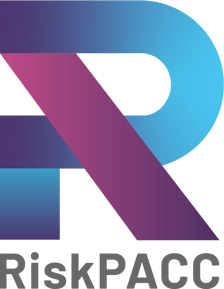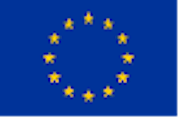STAMINA Newsletter: 3rd Edition |
Welcome to the STAMINA project newsletter, a guide to our latest work and news. STAMINA is a H2020 project (No. 883441) developing a smart support platform that will assist pandemic crisis management practitioners at a regional, national and international level. The STAMINA toolset will be accompanied by a set of guidelines on effective implementation of risk communication principles and best practices in cross-organisational preparedness and response plans. The STAMINA consortium unites a diverse range of experts and organisations, including decision makers, policymakers, national planners, public authorities, health care workers, regional emergency management agencies, first responders, NGOs, social scientists, (bio)informaticians, research organisations and IT experts. Read more about the project here. |
|
|
Role of volunteers in pandemic response: The impact of collaborating through volunteering opportunities |
The evolution of the global health crisis represents both a challenge and an opportunity to prepare appropriate and prompt responses to various crisis situations. The support of the European Union in preventing and combating potential bottlenecks has stimulated civil society intervention through volunteers from non-governmental organizations. In Romania, the Red Cross volunteers have proven their capability in resource mobilisation, early response, and in making value-added contributions. Read more |
Finding solutions for pandemic response: Matching end-user needs with solution-providers |
The STAMINA project plays a critical role in developing a toolkit to equip stakeholders, like public health ministries, hospitals, and emergency first responders, to better deal with pandemic and crisis situations. The main preoccupations of STAMINA are not only the development of tools, but also the testing and evaluation of those tools through twelve national trials and one cross-border trial. The Trial Integration Meeting (TIM) is critical to STAMINA to integrate each solution within the trial context and matching end-user needs with solution-providers. Read more |
|
|
Pandemics and the Environment: Modelling the Broader Picture |
Pandemic preparedness and response measures are not always designed with the environment in mind, focusing instead on lives saved. As such, short-term mitigation measures during pandemics can worsen long-term environmental and ecological problems. The COP26 UN Climate Change Conference, and its spotlight on the complexities of climate change, is a reminder that conversations about pandemics are also in many ways conversations about the environment. Read more |
|
|
Spanish Red Cross State Conference on Digital Technological Services, Valencia Held in Valencia from 29th of November to 2nd of December 2021, the Conference highlighted key technological innovations for societal good. This year, the Spanish Red Cross presented the STAMINA project and introduced its role in enabling pandemic preparedness and response through innovative tools and platform for end-users and first responders. A demonstration of the trials meant to test and tailor the STAMINA tools was also carried out during the conference to foster a deeper understanding of the usefulness of the project among the audience. Read more |
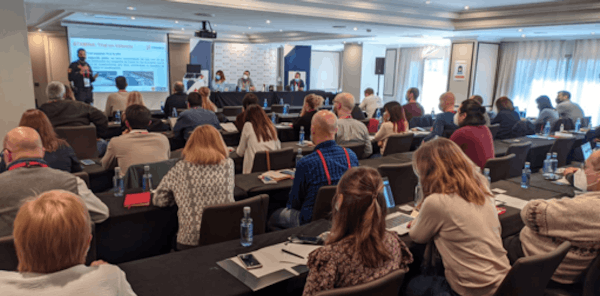 |
Public Safety Communication Europe (PSCE) Conference, Brussels The Valencia Local Police (PLV) presented STAMINA at the PSCE Conference which took place from 30 November to 1 December 2021. Attendees of the conference comprised industry, practitioners, law enforcement agencies, researchers in public safety and disaster management as well as European Union (EU) officials and experts from different EU Directorate-General, DG CONNECT, DG ECHO, DG HOME and ESA. Presenting to this audience allowed our partners to gather valuable policy insights relevant to the themes and topics addressed by STAMINA. Learn more |
|
|
A trust-motivated framework for assessing governments engagement with citizens on social media Citizens' trust in official institutions is particularly relevant in times of the COVID-19 pandemic. A decline in trust can lead to lower rates of compliance with the rules and regulations designed to face these difficulties. This study proposes a methodology to evaluate the social media presence of governmental agencies through the lens of trust theories. Read more |
 |
The role of law enforcement agencies and the use of IT tools for a coordinated response in pandemic crisis management Pandemic crises are disruptive events that are not only a threat to public health, but also to public safety. In order to provide an adequate response, Law Enforcement Agencies (LEAs) had to adapt their structures, staffing conditions and competencies to face exceptional circumstances. The STAMINA Project adds value to LEAs through a set of tools that improve the management of information in all phases of the pandemic and enhance response and coordination among all first responders involved in a pandemic. Read more |
|
|
Twelve EU-funded H2020 projects have united to form the PREparedness and resPonse for emergency situAtions in euRopE (PREPARE) cluster. Together CO-VERSATILE, COVID-X, COVINFORM, EUR3KA, LINKS, NO FEAR, PANDEM-2, PERISCOPE, PHIRI, RiskPACC, STAMINA and STRATEGY will explore synergies, research opportunities and deliver joint activities to maximise impact. Read more |
Welcoming LINKS andRiskPACC to the PREPARE Cluster |
|
|
LINKS is a comprehensive study on disaster governance in Europe, aimed at strengthening links between technologies and society for improved European disaster resilience, by producing sustainable advanced learning on the use of social media and crowdsourcing (SMCS) in disasters. |
| RiskPACC focuses on increasing disaster resilience across society by closing the so-called Risk Perception Action Gap (RPAG) and aims to provide an understanding of disaster resilience from the perspective of citizens and Civil Protection Authorities (CPAs), identifying good practices led by both citizens and CPAs. |
|
|
13 COVID-X data and AI solutions supporting healthcare providers
The COVID-X Program runs a unique 10-month acceleration program that targets European Start-Ups and SMEs that develop data and AI solutions to tackle coronavirus. The acceleration program helps to boost their launch into the market.
The COVID-X Open Call #2 is an evaluation process to select teams to join the acceleration program. Open Call #2 lasted till 16 September 2021 and attracted applications from a varied range of start-ups and SMEs across eight European countries. This acceleration program supports healthcare systems to save lives of those affected by coronavirus. Learn more |
For more information on the STAMINA project please visit our website: www.stamina-project.eu Email:info@stamina-project.eu |
|
|
| This project has received funding from the European Union’s Horizon 2020 research and innovation programme under grant agreement No 883441. The contents of this publication are the sole responsibility of the authors and can in no way be taken to reflect the views of the European Commission. |
|
|
Our mailing address is: Trilateral Research 1 Knightsbridge Green London SW1X 7QA United Kingdom info@stamina-project.eu If you prefer not to receive emails from the STAMINA Project, please unsubscribe. |
|
|
| |

